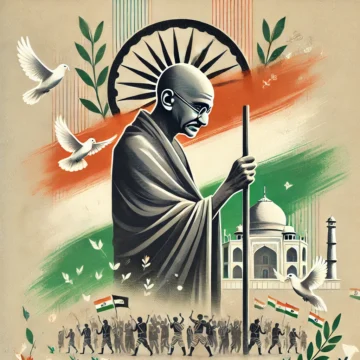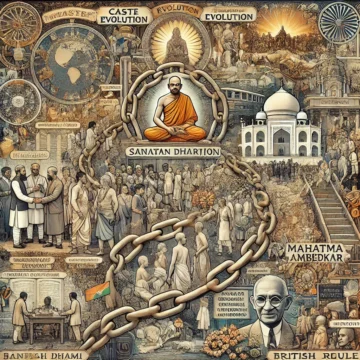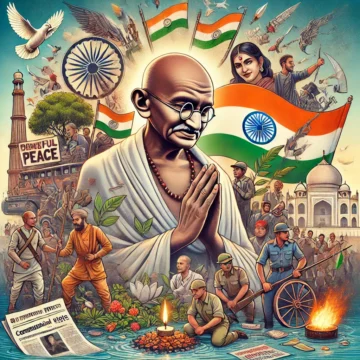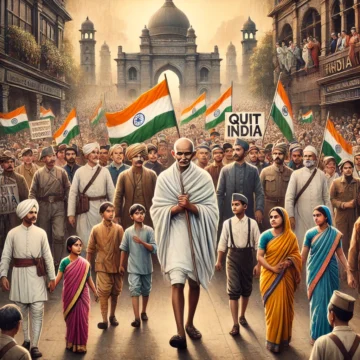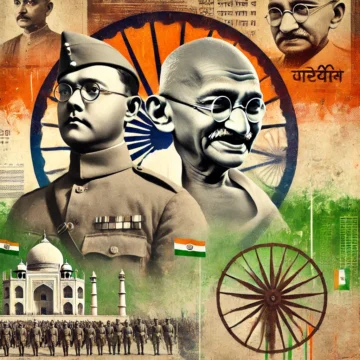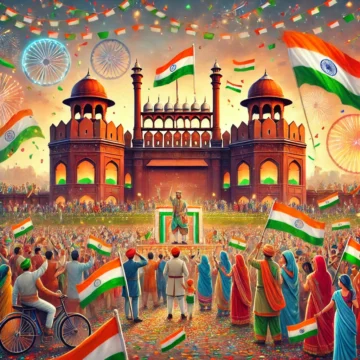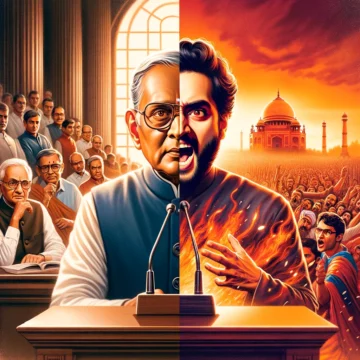Mahatma Gandhi and his legacy of nonviolent resistance and his philosophies of Ahimsa (nonviolence) and Satyagraha (passive resistance) are said to have shaped India's struggle for independence. While his principles remain influential, Gandhi’s leadership faced intense criticism, especially for his decisions and approach. This blog critically examines his impact, challenges, and controversies.
Tag: Mahatma Gandhi
Poona Pact: Colonial Legacies and Enduring Divisions in Hindu Society
The Poona Pact of 1932, brokered amidst India's freedom struggle, was a crucial agreement between Gandhi and Ambedkar under British colonial influence. It aimed to preserve Hindu unity while addressing caste disparities, setting a stage for future social reforms and the ongoing discourse on affirmative action and equality in modern India.
Sanatan Dharma and Caste Evolution: Navigating the Pros and Cons
Explore the intricate layers of caste evolution within Sanatan Dharma through historical periods like the Mughal era and British colonial rule. Witness how figures like Mahatma Gandhi and B.R. Ambedkar shaped the modern perceptions and roles within the caste system, and delve into the ongoing debates over nepotism and caste-based privileges.
Mahatma Gandhi and Nonviolence
Explore the complexities of Mahatma Gandhi's legacy in our detailed discussion on his principle of nonviolence and its modern-day implications. This blog delves into Gandhi's interpretations, historical actions, and their impacts on today's social and political movements, inviting readers to reflect on the dynamic nature of his enduring philosophies.
Mahatma Gandhi and His Principles Analyzed
Exploring Mahatma Gandhi's complex legacy, this blog dives into his reinterpretation of non-violence, political use of religious symbols, and strategies during the Indian independence movement. It critically examines how Gandhi's actions sometimes contradicted his ideals, particularly in his approaches to Hindu-Muslim unity and economic self-reliance, offering a nuanced perspective on his enduring impact.
India’s Freedom Struggle and Quit India Movement-I
This blog explores India's Freedom Struggle, emphasizing Gandhi's controversial leadership in movements like Non-Cooperation and Quit India. Despite widespread admiration, his strategies, marked by abrupt decisions and strategic recalibrations, played complex roles in shaping India's quest for independence, raising questions about the overall impact of his 33-year-long leadership.
Subhash Chandra Bose: Contrasting Strategies with Gandhi
Explore the profound contrasts between Subhash Chandra Bose's militant tactics and Mahatma Gandhi's non-violent strategies in the fight for Indian independence. This blog delves into how their ideological differences influenced the movement's trajectory, offering insights into their leadership roles and the lasting impact of their divergent approaches on India's path to freedom.
India Independence Day Decided Seven Seas Away
Each August 15th, India bursts into celebrations for India Independence Day, marking its liberation from British rule. This blog delves into the Indian Independence Act of 1947, exploring the political strategies and pivotal decisions that sculpted this momentous day, unveiling the layers of struggle and triumph that defined the era.
Indian Freedom Fighters: Legacy of Gopal Krishna Gokhale
As one of the prominent Indian freedom fighters, Gopal Krishna Gokhale played a pivotal role in the early years of India's struggle against British colonial rule. Born on May 9, 1866, in Ratnagiri, Maharashtra, Gokhale's contributions as a senior leader of the Indian National Congress and a distinguished social reformer were significant. His diplomatic skills and steadfast principles led him to the presidency of the Congress in 1905, advocating for self-rule through gradual and constitutional reforms. Gokhale’s commitment to moderate nationalism and his focus on elevating the Indian elite's status underscored his strategic approach to engaging with colonial authorities through dialogue and legislative advocacy. His founding of the Servants of India Society aimed to prepare the nation for self-governance by educating and reforming society from within, further cementing his legacy as a reformer. The juxtaposition of Gokhale’s philosophies with those of Bal Gangadhar Tilak offers profound insight into the diverse strategies that shaped the struggle of Indian freedom fighters, highlighting the complex interplay between moderate reform and radical activism in their quest for self-rule.


